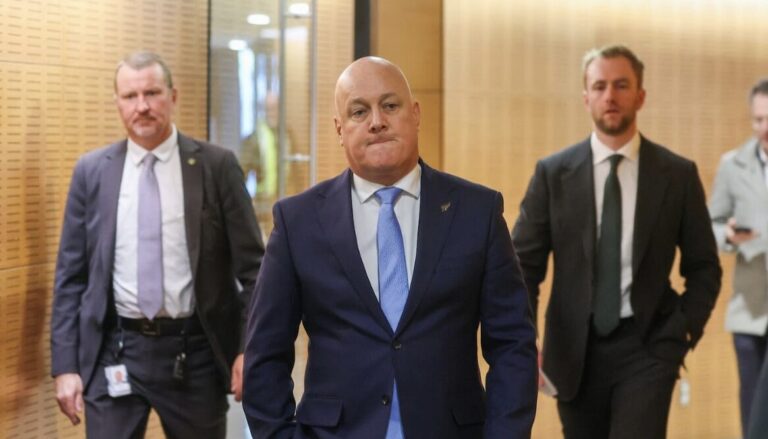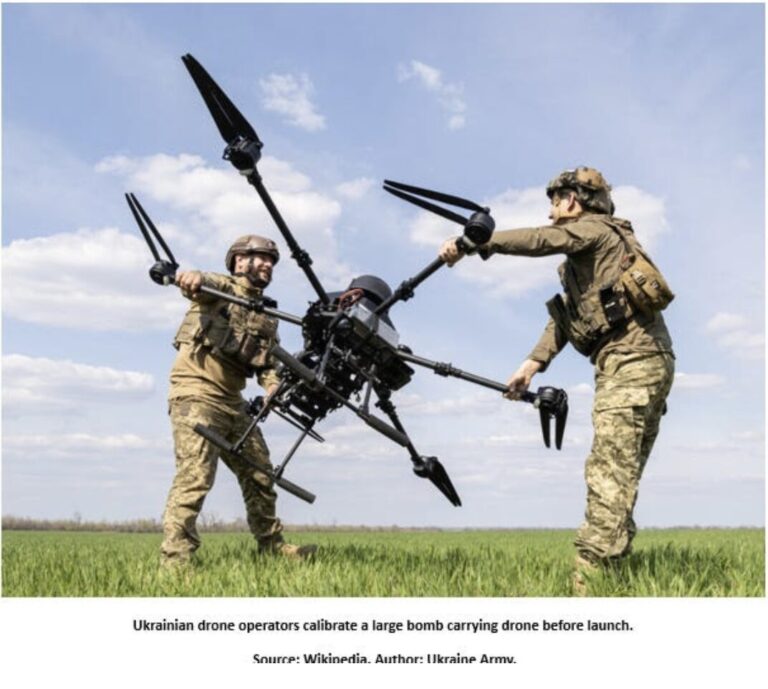Professor Jane Kelsey is 100% right – new Overseas Investment rules could hollow NZ out to trans-nationals
On last weeks, The Bradbury Group, Professor Jane Kelsey foreshadowed her concern with the new Overseas Investment rules, she makes the point this week…
Why has a bill to relax foreign investment rules had so little scrutiny?
Analysis: While public attention has been focused on the domestic fast-track consenting process for infrastructure and mining, Associate Minister of Finance David Seymour has been pushing through another fast-track process – this time for foreign investment in New Zealand. But it has had almost no public scrutiny.
If the Overseas Investment (National Interest Test and Other Matters) Amendment Bill becomes law, it could have far-reaching consequences. Public submissions on the bill close on 23 July.
A product of the ACT-National coalition agreement, the bill commits to amend the Overseas Investment Act 2005 “to limit ministerial decision making to national security concerns and make such decision making more timely”.
There are valid concerns that piecemeal reforms to the current act have made it complex and unwieldy. But the new bill is equally convoluted and would significantly reduce effective scrutiny of foreign investments – especially in forestry.
A three-step test
Step one of a three-step process set out in the bill gives the regulator – the Overseas Investment Office which sits within Land Information NZ – 15 days to decide whether a proposed investment would be a risk to New Zealand’s “national interest”.
If they don’t perceive a risk, or that initial assessment is not completed in time, the application is automatically approved.
Transactions involving fisheries quotas and various land categories, or any other applications the regulator identifies, will require a “national interest” assessment under stage two.
These would be assessed against a “ministerial letter” that sets out the government’s general policy and preferred approach to conducting the assessment, including any conditions on approvals.
Other mandatory factors to be considered in the second stage include the act’s new “purpose” to increase economic opportunity through “timely consent” of less sensitive investments. The new test would allow scrutiny of the character and capability of the investor to be omitted altogether.
If the regulator considers the national interest test is not met, or the transaction is “contrary to the national interest”, the minister of finance then makes a decision based on their assessment of those factors.
Inadequate regulatory process
Seymour has blamed the current screening regime for low volumes of foreign investment. But Treasury’s 2024 regulatory impact statement on the proposed changes to international investment screening acknowledges many other factors that influence investor decisions.
Moreover, the Treasury statement acknowledges public views that foreign investment rules should “manage a wide range of risks” and “that there is inherent non-economic value in retaining domestic ownership of certain assets”.
Treasury officials also recognised a range of other public concerns, including profits going offshore, loss of jobs, and foreign control of iconic businesses.
The regulatory impact statement did not cover these factors because it was required to consider only the coalition commitment. The Treasury panel reported “notable limitations” on the bill’s quality assurance process.
A fuller review was “infeasible” because it could not be completed in the time required, and would be broader than necessary to meet the coalition commitment to amend the act in the prescribed way.
The requirement to implement the bill in this parliamentary term meant the options officials could consider, even within the scope of the coalition agreement, were further limited.
Time constraints meant “users and key stakeholders have not been consulted”, according to the Treasury statement. Environmental and other risks would have to be managed through other regulations. There is no reference to te Tiriti o Waitangi or mana whenua engagement.
No ‘benefit to NZ’ test
While the bill largely retains a version of the current screening regime for residential and farm land, it removes existing forestry activities from that definition (but not new forestry on non-forest land). It also removes extraction of water for bottling, or other bulk extraction for human consumption, from special vetting.
Where sensitive land (such as islands, coastal areas, conservation and wahi tapu land) is not residential or farm land, it would be removed from special screening rules currently applied for land.
Repeal of the “special forestry test” – which in practice has seen most applications approved, albeit with conditions – means most forestry investments could be fast-tracked.
There would no longer be a need to consider investors’ track records or apply a “benefit to New Zealand” test. Regulators may or may not be empowered to impose conditions such as replanting or cleaning up slash.
The official documents don’t explain the rationale for this. But it looks like a win for Regional Development Minister Shane Jones, and was perhaps the price of NZ First’s support.
It has potentially serious implications for forestry communities affected by climate-related disasters, however. Further weakening scrutiny and investment conditions risks intensifying the already devastating impacts of international forestry companies. Taxpayers and ratepayers pick up the costs while the companies can minimise their taxes and send profits offshore.
Locked in forever?
Finally, these changes could be locked in through New Zealand’s free trade agreements. Several such agreements say New Zealand’s investment regime cannot become more restrictive than the 2005 act and its regulations.
A “ratchet clause” would lock in any further liberalisation through this bill, from which there is no going back.
However, another annex in those free trade agreements could be interpreted as allowing some flexibility to alter the screening rules and criteria in the future. None of the official documents address this crucial question. As an academic expert in this area I am uncertain about the risk.
But the lack of clarity underlines the problems exemplified in this bill. It is another example of coalition agreements bypassing democratic scrutiny and informed decision making. More public debate and broad analysis is needed on the bill and its implications.
…this Government is ramming through legislation at a blitzkrieg speed with one design, to limit criticism of policy that hands enormous gain to the big end of town, not the you or me.
The interests being served here are ethnic NZ Initiative, the Atlas Network, the Taxpayers’ Union, the wealthy NOT OURS!
This isn’t an economic policy, it’s an idealogical experiment, yet you the voter have your nose so out of joint over vaccines, Trans people and Māori that you would prefer to mutilate the country to ‘own’ the left and bend the knee to National’s donors!
None of us should bend the knees to corporations and spite the way this hard right Government have.
Dita De Boni reports that The Government is trumpeting the fact that 215 applications have so far been received for the rejigged Golden visa categories, with $1 billion in new money landing this year if all those who applied are approved.
Is this what we have become is it?
A country selling citizenship to multi-millionaires?
Is that how far we have fallen?
Our fourth estate media have been starved to death, and you don’t know what is actually happening in your own country.
Increasingly having independent opinion in a mainstream media environment which mostly echo one another has become more important than ever, so if you value having an independent voice – please donate here.







If it’s corporate can’t we apply new regulations as a result of our governments’ capitulation to overseas money and power?
https://www.rnz.co.nz/news/national/567748/coroner-seeks-tougher-controls-on-corporate-boxing-events
New Zealand sport about 1 hour ago Jul.23/25
Coroner seeks tougher controls on corporate boxing events
Adam Burns, Reporter adam.burns@rnz.co.nz
A coroner is calling for legislation to control corporate boxing events after Christchurch man Kain Parsons died after receiving 30 blows to the head in a charity bout.
Coroner Heather McKenzie’s findings and recommendations following Parsons’ death come as the government considers repealing law governing the sport.
The coroner’s 140-page report, released on Wednesday, comes almost seven years after Parsons died as a result of severe head injuries sustained during the Fight for Christchurch event.
His family has previously called for corporate boxing to be banned and, while their view has not changed, they largely support the coroner’s recommendations for tougher controls.
Coroner McKenzie recommended a review of legislative controls around corporate boxing, including the need for a specialist body to govern such events, as well as a review of certain rules of the sport itself.
In November 2018, Parsons took part in the charity boxing event at Wolfbrook Arena, then known as Horncastle Arena.
In the first round, Parsons was given three standing eight counts.
Less than a minute into the second round, he was knocked to the canvas and the bout was called off.
Parsons was taken to hospital, but died four days later.
His widow, Alana Parsons, described her husband as someone willing to give anything a go.
“Family was everything to him,” she said.
“He was a guy who would drop his hat and do anything for anyone. He was always willing to give a hand to anyone out there.
“He loved to give anything a go. He enjoyed his outdoor sports – freediving and mountain biking.”
The coroner found Parsons sustained almost 30 blows to the head in less than three minutes.
Dr Peter Benny and Alana Parsons are both calling for changes. ‘Living in a dark age’
A boxing expert told the inquiry the fight should have been called off earlier. It was a view echoed by Parsons’ father-in-law Dr Pete Benny.
He told RNZ his son-in-law was let down by an “old fashioned and outdated” corporate boxing culture.
“Each of those 29 or 30 punches would’ve been enough to pull someone out of a rugby match for a head injury assessment,” he said.
“We’re living in a dark age if we continue corporate boxing as it is now.”
Coroner McKenzie found there was insufficient evidence as to whether referee Kevin Pyne should have called the fight off earlier, or whether he was right to allow it to continue.
“I have made a finding that Mr Pyne could have taken further, more focused available steps to assess Mr Parsons’ ability to continue the match after the third standing eight count.”
However, she recommended the standing eight count test undergo a review as to whether it was fit for purpose…
Coroner McKenzie recommended a review of the legislation to specifically consider how corporate boxing was regulated, including whether a single central body was needed.
“The specific context of corporate boxing includes relatively novice fighters participating in a specialised sport generally known to carry inherent risks and as such subject to a legislative regime.”
Under the act, there were 32 organisations registered under the Department of Internal Affairs to run corporate boxing events…
In a statement, Internal Affairs Minister Brooke van Velden said any death from combat sports was an “avoidable tragedy that nobody wants to see happen in New Zealand”…
The proposal to repeal the 44-year-old legislation was because it was outdated and too narrow, van Velden said.
“It is preferable to have one clear and modern legislative framework for all combat sports.
“Sport New Zealand are the lead co-ordinating agency considering current issues with combat sports including a potential government response, and DIA was supporting them with this along with other relevant agencies.”
No fast-tracking legislation here. Like a Maori prayer it would take up time and add too much to the legislative burden falling on the present government no doubt. Something heavier might yet all on them – an earthquake? The end of our world?
Why couldn’t the Coroner’s judgment be made that it was wrong to not call the fight off earlier? Could that then have opened the way to a hefty claim against some entity with heft?? Surely the rules should be revised especially when it is a charity bout. A fall after one count of eight should be the end, not waiting for three falls.
Boxing is disgraceful sometimes. I remember a case a long time ago when a young PI man got wiped out mentally from coming here to be given a chance in a bigger venue from home. There was a duty of care to him that was insufficiently applied, and he was wrecked mentally.
New Zealand sport
about 1 hour ago
Coroner seeks tougher controls on corporate boxing events
about 1 hour ago
Share this
Share on Twitter
Share on Facebook
Share via email
Share on Reddit
Share on Linked In
Adam Burns
Adam Burns, Reporter
adam.burns@rnz.co.nz
A coroner is calling for legislation to control corporate boxing events after Christchurch man Kain Parsons died after receiving 30 blows to the head in a charity bout.
Coroner Heather McKenzie’s findings and recommendations following Parsons’ death come as the government considers repealing law governing the sport.
The coroner’s 140-page report, released on Wednesday, comes almost seven years after Parsons died as a result of severe head injuries sustained during the Fight for Christchurch event.
His family has previously called for corporate boxing to be banned and, while their view has not changed, they largely support the coroner’s recommendations for tougher controls.
Coroner McKenzie recommended a review of legislative controls around corporate boxing, including the need for a specialist body to govern such events, as well as a review of certain rules of the sport itself.
In November 2018, Parsons took part in the charity boxing event at Wolfbrook Arena, then known as Horncastle Arena.
In the first round, Parsons was given three standing eight counts.
Less than a minute into the second round, he was knocked to the canvas and the bout was called off.
Parsons was taken to hospital, but died four days later.
Kain Parsons
Kain Parsons with two of his children. Photo: Supplied
‘Family everything to him’
His widow, Alana Parsons, described her husband as someone willing to give anything a go.
“Family was everything to him,” she said.
“He was a guy who would drop his hat and do anything for anyone. He was always willing to give a hand to anyone out there.
“He loved to give anything a go. He enjoyed his outdoor sports – freediving and mountain biking.”
The coroner found Parsons sustained almost 30 blows to the head in less than three minutes.
Dr Peter Benny and Alana Parsons are both calling for changes. Photo: RNZ / Nathan McKinnon
‘Living in a dark age’
A boxing expert told the inquiry the fight should have been called off earlier. It was a view echoed by Parsons’ father-in-law Dr Pete Benny.
He told RNZ his son-in-law was let down by an “old fashioned and outdated” corporate boxing culture.
“Each of those 29 or 30 punches would’ve been enough to pull someone out of a rugby match for a head injury assessment,” he said.
“We’re living in a dark age if we continue corporate boxing as it is now.”
Coroner McKenzie found there was insufficient evidence as to whether referee Kevin Pyne should have called the fight off earlier, or whether he was right to allow it to continue.
“I have made a finding that Mr Pyne could have taken further, more focused available steps to assess Mr Parsons’ ability to continue the match after the third standing eight count.”
However, she recommended the standing eight count test undergo a review as to whether it was fit for purpose.
Just our corporate masters directing the government, that they own, to tidy up a few loose ends left over from the TPPA.
Good heavens R Christie didn’t bring on this mishmash below. It is completely my own work! I thought I should get my apologies in early before readers resiled. Don’t know what happened, I think I must have been punch drunk. But if you can stay with it there is a message of concern and shows a lack of that concern from the responsible? authorities and the gummint which we know can never be held to account, as always being in debt to some grandiose pension fund etc. from overseas.
By the way, did you notice that Fletchers Construction that belongs to aforesaid entities etc. is selling off the construction arm that we sold to them in bad faith ie we shouldn’t have allowed this, we citizens. Now we are leaving a gap for some other light-handed people to come along. Another brick from our previously strong wall.
Another moan till one gets sick of them, but we have to get this into the known knowns or we don’t know what we had before and don’t know what we’ve lost. Capisce.
Just in case there is some small info that hasn’t been covered elsewhere or like me some commenters haven’t been paying enough attention.
https://www.rnz.co.nz/news/on-the-inside/567552/why-has-a-bill-to-relax-foreign-investment-rules-had-so-little-scrutiny
Just saw this on John Law and his effect on how we think and deal with money and business nationally.
I had a thought that perhaps we are in some sort of bubble now, or can it be compared to the Simpsons’ Springfield fantasy –
Patrick Boyle pretty good at explaining 44.41m
https://www.youtube.com/watch?v=H5uKPUPQSyQ
John Law – The First Financial Engineer – A History of Paper Money and The Mississippi Bubble
John Law was a Scottish monetary reformer and originator of the “Mississippi scheme” for the development of French territories in America.
or more arty but still informative
How The World’s First Finance Bro Ruined A Nation 32.47m
https://www.youtube.com/watch?v=9FXYUMNH8CQ
How John Law’s first experiment with paper money ended up crashing the French economy with it
and how economics applies to the general public The Circular Flow etc explained –
educational and useful rather than more historical.
John Law 16.46m
https://www.youtube.com/watch?v=Vqh_zCsmHs0
And a key part of economic decisions is stimulation of popular passions (the overlooked lever
of free market economics!):
Simpsons Monorail Song – the slick salesman and his monorail project.
https://www.youtube.com/watch?v=ZDOI0cq6GZM 2.56m
The psychology is solid, not cartoonish.
Monorail: A Key Urban Lesson from The Simpsons
https://www.strongtowns.org/journal/2018/3/22/monorail-a-key-urban-lesson-from-the-simpsons
Strong Towns
22 Mar 2018 — The first and most obvious point that the Monorail episode shows us is :
how cities often prioritize flashy, exciting projects over solving real problems.
Roger picked our pockets while our attention was diverted, taught by an artful person (why he is now called Rodger the Dodger) to be quick at it, and get lots of silk hankies so rubbing our noses in the mire that we landed in. National are equally as quick to think up similar and have managed the look-over-here all right, actually Trump and Israel have been great for that. Bob the fart agrees. Soon we’ll be okay, we won’t have any pockets left to pick.
Weak joke for the day re pockets. When are men and elephants most alike? What is “The Elephant Joke”? :
You pull your pockets out of your pants and then pull your dick out and swing around, It was usually done at parties or any live outdoor sport/news broadcast. [Now everything, anywhere goes under neolib.]
Reddit · r/AskMen
The proposed changes will result in increased OIO refusals of applications from much of the world, alongside automatic approvals for any applications from Five Eyes and closely allied states (for example the State of Israel). On the face of it the SIS will control the OIO under the proposed legislation.
Who gives a damn? We already know that the Five Eyes and their allied states own the SIS and the New Zealand government, so why shouldn’t they own everything else?
Thanks for this. We’re pretty much kept in the dark over such proposed changes, never knowing either the intended or unintended consequences. Kelsey appears something of a lone voice in the space of international trade deals and related legislation. MSM are not that helpful. But there must be some independent journalists who are interested.
Nothing is ever going to change until we can get rid of this thick skinned, obnoxious CoC bunch. Think Seymour – think ‘Smoke & Mirrors’, think SNEAK! He just can’t help it – he is wired to cheat, and he enjoys doing exactly that. He couldn’t give a toss about NZ – he will be long gone before the real damage is apparent. The “stupid” and those with a vested interest can’t see it or won’t see it! The New Overseas Investment Rules Bill is another example of the coalition by passing democratic scrutiny. How much longer are the “stupid” going to allow this to go on – until there is NO NZ or we BELONG to Australia or the horrible USA? We must have much longer time frames, more information, plus public debate on all procedural changes not less. This will be another risky Bill that will need to be rescinded by the Left. Wake up Kiwis are you that “thick”?
They may be thick, but they’re ekshully really really thin skinned – not unlike the orange fascist.